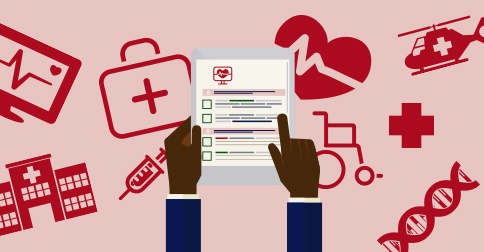 For many people, Nursing was all they ever imagined they would be doing as their career. For other people, becoming a Nurse was a second career for them. No matter which stage in life they chose to become a Nurse, these people are passionate about what they do and they are happy they made the switch to a job they love.
For many people, Nursing was all they ever imagined they would be doing as their career. For other people, becoming a Nurse was a second career for them. No matter which stage in life they chose to become a Nurse, these people are passionate about what they do and they are happy they made the switch to a job they love.
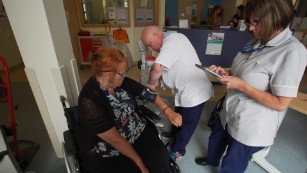 John McElroy worked in a local brick factory for about twenty-five years. He lost his job in 2007 after sufferring from a stroke. McElroy wanted to be a Nurse when he was younger and during one of his hopsital visits, his childhood dream was restored. John told CNN, the Nurse thought he would be a fantastic Nurse. She gave him advice and told him, "You will have loads of excuses to not do this, to fail, to quit. But you've got to carry on."
John McElroy worked in a local brick factory for about twenty-five years. He lost his job in 2007 after sufferring from a stroke. McElroy wanted to be a Nurse when he was younger and during one of his hopsital visits, his childhood dream was restored. John told CNN, the Nurse thought he would be a fantastic Nurse. She gave him advice and told him, "You will have loads of excuses to not do this, to fail, to quit. But you've got to carry on."
John attended college and even earned $4,000 in scholarships. In 2012 he graduated with a Nursing degree and every day McElroy sees pieces of his own journey reflected in his patients. He educates families on the unique needs of stoke survivors. By sharing his personal story, he hopes his patients will believe that there is life after recovery.
.jpg?width=307&name=1473958826-NSL_29NURSE01_51885364-(2).jpg) When Bob Evans was 20 years old he took an aptitude test that showed Nursing as a good match for him. Learning news that he was going to become a father Bob decided to take a job in the horticulture business, mostly in sales and customer-service positions in landscaping and lawn care.
When Bob Evans was 20 years old he took an aptitude test that showed Nursing as a good match for him. Learning news that he was going to become a father Bob decided to take a job in the horticulture business, mostly in sales and customer-service positions in landscaping and lawn care.
In his late 50's, there was a restructuring where he worked. He wasn't sure what he was going to do for work. His wife Lou said, "Remember how you were interested in becoming a nurse when we got married?" I said, "It's too late," but she said, "I don't think so." Bob and his wife attended an information open house at Collin College and decided to go for it. He earned his associate's degree at Collin College in 2013 and a bachelor of science in nursing in 2016 at the University of Texas at Arlington.
Bob told Dallas News the toughest part about changing careers is, "The transition from expert to novice. I knew that not being the expert on the job anymore would be an adjustment. Assuming the role of novice required a steady flow of swallowing my pride. It has been humbling, but learning and mastering skills that help others is really rewarding."
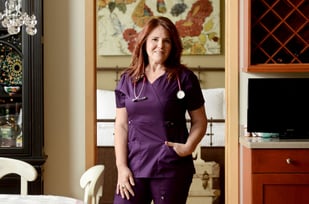 Laura Callens worked as a school admissions director and was taking care of her husband, Eddy, who had brain cancer. After Eddy passed away in 2011, Laura quit her job and spent some time in Mexico where she had a career epiphany. She heard about a nursing program and realized she had honed relevant traits and skills like compassion and deep listening while caring for her husband. Though hesitant to become a student again, she applied to Nursing school.
Laura Callens worked as a school admissions director and was taking care of her husband, Eddy, who had brain cancer. After Eddy passed away in 2011, Laura quit her job and spent some time in Mexico where she had a career epiphany. She heard about a nursing program and realized she had honed relevant traits and skills like compassion and deep listening while caring for her husband. Though hesitant to become a student again, she applied to Nursing school.
According to the NewYork Times, Ms. Callens happily graduated last December and will soon be a neurological nurse. She will work in the Rochester hospital unit where her husband was treated.
Changing careers is always a nerve-racking journey. For people in their 40s and 50s, making a change can be daunting. Experts believe assessing job opportunities, doing some smart skill-matching and getting technical training can help speed the process. But, you also have to love what you do for a living and these people luckily found their calling.



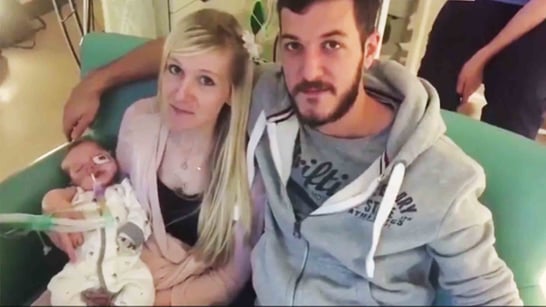 I've read many articles discussing cases of euthanasia, the use of life support, and Death with Dignity. This case involves the life of an 11-month-old boy named Charlie Gard. Charlie's parents, Chris Gard and Connie Yates, are trying to prevent Doctors in London from turning off their son's life support so they can take him to the United States for an experimental treatment. Charlie has a rare degenerative condition called Mitochondrial DNA depletion syndrome.
I've read many articles discussing cases of euthanasia, the use of life support, and Death with Dignity. This case involves the life of an 11-month-old boy named Charlie Gard. Charlie's parents, Chris Gard and Connie Yates, are trying to prevent Doctors in London from turning off their son's life support so they can take him to the United States for an experimental treatment. Charlie has a rare degenerative condition called Mitochondrial DNA depletion syndrome. Technology is an integral part of almost every field of work and in order for Health systems to stay on the cutting edge you need a healthcare IT professional on staff. This is where the Nurse informatics specialist comes in.
Technology is an integral part of almost every field of work and in order for Health systems to stay on the cutting edge you need a healthcare IT professional on staff. This is where the Nurse informatics specialist comes in.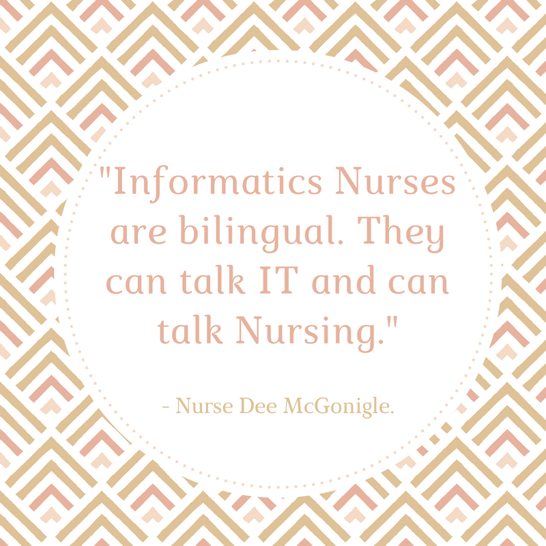 Informatics Nurse isn't a new career choice. Joyce Sensmeier, vice president of informatics at
Informatics Nurse isn't a new career choice. Joyce Sensmeier, vice president of informatics at  Former Fleet Marine Force corpsman, George "Mik" Todd, released a new hip-hop album called Combat Medicine. George raps under the name Doc Todd and his main goal is to help veterans suffering from post-traumatic stress disorder, depression, or substance abuse.
Former Fleet Marine Force corpsman, George "Mik" Todd, released a new hip-hop album called Combat Medicine. George raps under the name Doc Todd and his main goal is to help veterans suffering from post-traumatic stress disorder, depression, or substance abuse.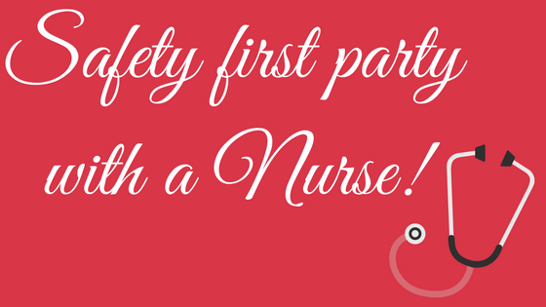
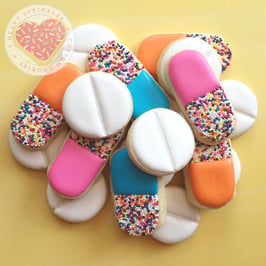
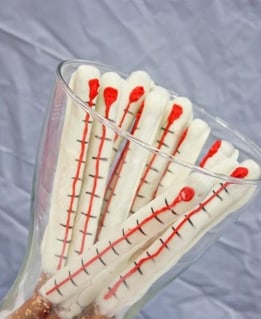
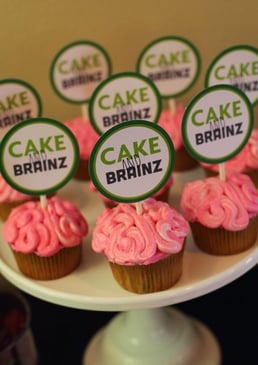
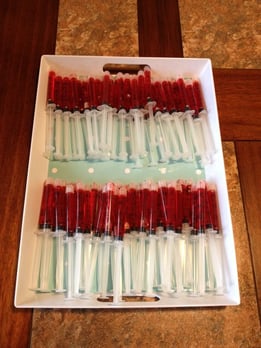
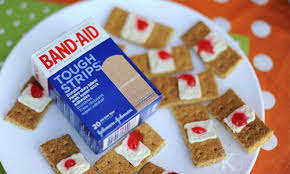
 Unique challenges encompass the delivery of quality healthcare in the entire world as a whole. People of all ages are terminally ill -- with approximately half the American population fighting hypertension, diabetes, cardiovascular diseases, arthritis and mental related illness.
Unique challenges encompass the delivery of quality healthcare in the entire world as a whole. People of all ages are terminally ill -- with approximately half the American population fighting hypertension, diabetes, cardiovascular diseases, arthritis and mental related illness.

 Samantha Rivera from Missouri is being accused of identity theft of a Nurse and using that I.D to get hired at St. Alexis Hospital. Rivera lied about having Nursing experience and a degree. According to
Samantha Rivera from Missouri is being accused of identity theft of a Nurse and using that I.D to get hired at St. Alexis Hospital. Rivera lied about having Nursing experience and a degree. According to  Over in California Nurse imposter, Chad Litz, also with a history of lying, has been arrested. In 2015, the California Board of Registered Nursing
Over in California Nurse imposter, Chad Litz, also with a history of lying, has been arrested. In 2015, the California Board of Registered Nursing 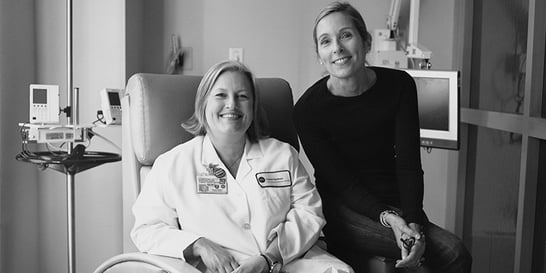 This heartwarming Ted Talk is a glimpse into
This heartwarming Ted Talk is a glimpse into 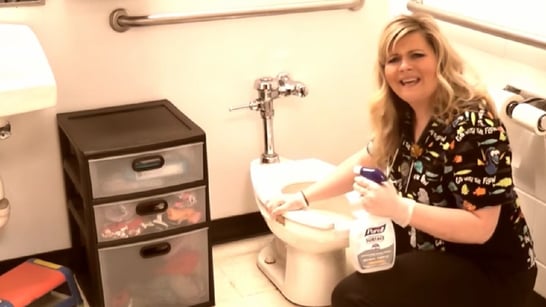 It’s Nurses Week and we always want to show our thanks for everything you do. This School Nurse wanted to show her thanks, especially to other School Nurses, for taking care of our kids.
It’s Nurses Week and we always want to show our thanks for everything you do. This School Nurse wanted to show her thanks, especially to other School Nurses, for taking care of our kids. 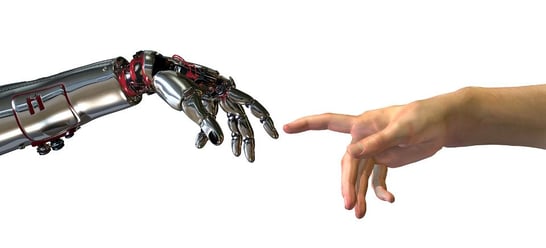 With technology consistently evolving, Nurses will see an influx of new advancements throughout the next couple of years. Nurses will have the opportunit
With technology consistently evolving, Nurses will see an influx of new advancements throughout the next couple of years. Nurses will have the opportunit